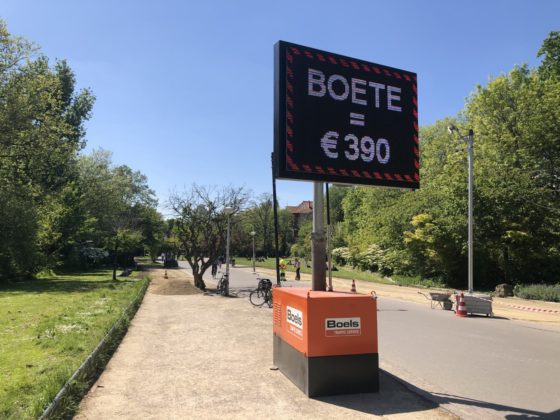Police and wardens issued 18,200 fines by May 10, but half had errors


About half the 18,200 fines issued to people for breaking coronavirus rules up to May 10 were not complete and have been sent back to police and local council officials for improvement, the public prosecution department said on Friday.
The fines have been deemed incomplete because they either don’t include a proper description of why they were issued, they miss relevant documents or personal details don’t add up, the department said.
By May 10, 18,200 fines had been issued by wardens and police officers – earlier estimates of 10,000 fines did not include those handed out by local authority wardens.
In 7,400 cases the public prosecution department has upheld the fine and ordered payment, which will result in a criminal record for those involved. A further 207 criminal cases will go to court, mostly involving people who threatened or attacked a police officer, street warden or health service worker.
Most fines have been issued to people who broke social distancing rules or were said to have been part of an illegal group.
But much remains unclear who and why people are fined for being with more than two other people. Prime minister Mark Rutte said at Tuesday’s press conference that it has never been illegal for more than three people to gather together – as long as they keep to 1.5 metres distance.
But many people have been fined because they are in groups – which some wardens and police interpret as being an organised gathering – and which is illegal.
Lawyers have been calling on people who have been fined in such circumstances to make a formal protest and not accept the ticket. By May 10, only 70 people had done so.
The fine is €390 for adults aged 18 and over and €95 for the over-12s.
Criminal record
‘I am particularly concerned about the fact that a fine will result in a criminal record,’ lawyer Frank Janzing told Trouw. ‘This means that in the future it could have an impact on an application for a certificate of good behaviour (VOG).’
‘I would urge people to protest about the fines and in my experience, if you do go to court, you are unlikely to be worse off.’
Amsterdam lawyer Justin Kotter, who is dealing with around 100 cases, said he is sure people who appeal have a good chance of wining. ‘Why should my clients, students who live in the same house and had a beer outside get a fine without a warning while a family of five can make a big show of sitting together on the pavement?’ he said. ‘The rules are confusing and random.’
Meanwhile, research by the local health boards and public health institute RIVM shows that fewer people are now keeping strictly to the 1.5 metre rule, particularly when visiting friends and family.
Thank you for donating to DutchNews.nl.
We could not provide the Dutch News service, and keep it free of charge, without the generous support of our readers. Your donations allow us to report on issues you tell us matter, and provide you with a summary of the most important Dutch news each day.
Make a donation